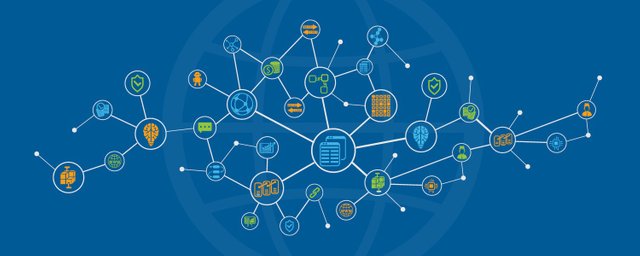Conclusion: Blockchain's Scalability Problems Can Be Resolved by the Implementation of DAGs

Correspondingly, as the extent of casual associations has reached out to different assorted stages with different fundamental attributes and capacities, crypto stages will increase for each kind of use case and essential. Crypto development is generally synonymous with blockchains, however this is rapidly changing and with essential implications.
The DAG is coming
The central stress of advanced money development is keeping an especially clear however by and large crippling activity: twofold spending. This is the place an entertainer uses comparable backings twice, paying for various trades as needs be tricking the payees. Appropriate fiscal norms ought to be uncommon as a token of critical worth; in order to ensure lack, conventional money related structures are most of the way issued while computerized monetary forms rely upon a cryptographically secured, everything considered, shared record as an intriguing wellspring of truth.
Blockchains achieve this by (as the name prescribes) interfacing bits of trades together in a lasting chain of information that is replicated on each center point of the framework. This is a benefit and computation focused as it sounds; it is really like requiring a copy of everyone's bank data on your PC remembering the ultimate objective to make an electronic dealing with a bookkeeping trade. While this capacities splendidly enough for clear portions, it ends up being prohibitively resource concentrated when more personality boggling and novel applications (which we'll discuss later) come in to play.
The course of action that was found was to switch up the framework of these records to make them more capable. The cryptoshpere is ceaselessly stretching out and tinkering to tailor hybrid stages to specific use cases.
One jump forward is called Directed Acyclic Graphs (DAGs), a thought formally used as a piece of framework theory. "Graph" is essentially one more name for a framework or web of center points, "Facilitated" infers that the relationship between 2 center points are one-directional, suggesting that joint efforts (information, regard, et cetera.) is described as a confined association among center points, and "Non-cyclic", could be cleared up as "moving from center to center by following the edges, you will never encounter a comparable center for the second time".
This is to some degree mind-boggling, however multifaceted nature is extremely the reason for this data structure; instead of requiring that every center point take full interest in recording and setting up each trade, DAGs rely upon complexity and interconnectedness to make the cryptographic dividers that maintain a strategic distance from twofold spending and other canny lead. This versatile quality is ensured by how new center points are added to the DAG; with a particular true objective to keep a more united framework where two or three central center points are related with various others (a "more broad" framework), DAGs ensure connectedness including new centers unequivocally.
The result is a work of centers that rely upon each other for trade endorsement; moreover called a "tangle", DAGs move the locus of cryptographic healthiness from the piece level (as with blockchains) to the whole framework itself. As the framework expands, more centers are layered onto the tangle, allowing a between dependent yet capable strategies for sending trades over the framework. Certifications are made not with new squares simply like the case with blockchains, however with new trades with each asserting the past trade.
What is the qualification that DAG makes?
So it's sensible the framework supporting DAGs is novel and interesting, yet what this all achieves is another request. Put essentially, DAGs are significantly more lightweight than blockchains. They do exclude mining, rather relying upon customers certifying trades amid the time spent setting their own specific trades. In normal cases the money on the framework is premined, making it deflationary like bitcoin. The trades each second and the speed of those trades are significantly more business-arranged than other crypto models in like manner. As one DAG-based undertaking, CyberVein cleared up:
"DAGs, if used precisely and for the right purposes, hold the capacity of beating blockchain's adaptability issue. Since each trade includes the underwriting of two past ones, the framework's speed augments exponentially with its size. The nonattendance of pieces and the mining thereof suggests that trades happen "on the fly" and not in clumpy between times, the "square size open consultation" is rendered irrelevant, and the risks of united hashing power are eased on a very basic level."
Stages like CyberVein are using DAG's capacities to make secure, however more beneficial record courses of action. In spite of the fact that any similarity of bitcoin made trustless trades possible, DAGs are being used by associations to do things that are unfathomable with blockchains. Systems that require brisk and versatile portion capacities, especially where some low-regard trades are to be sent for the length of the day, everything with the exception of requires such limits. The most unquestionably comprehended is IOTA, a phase that crosses areas record development and Internet-of-Things use cases.
These usage cases incorporate sensors that screen various data shows and have a tendency to send countless and messages each day. Blockchains are especially unequipped for dealing with such throughput a significant part of the time. DAGs are verifiably looking like the primary decision for IoT-record use cases.
Congratulations @crow34! You have completed some achievement on Steemit and have been rewarded with new badge(s) :
Click on any badge to view your own Board of Honor on SteemitBoard.
For more information about SteemitBoard, click here
If you no longer want to receive notifications, reply to this comment with the word
STOP